Nikhil Varghese
Towards Automatic Evaluation of Task-Oriented Dialogue Flows
Nov 15, 2024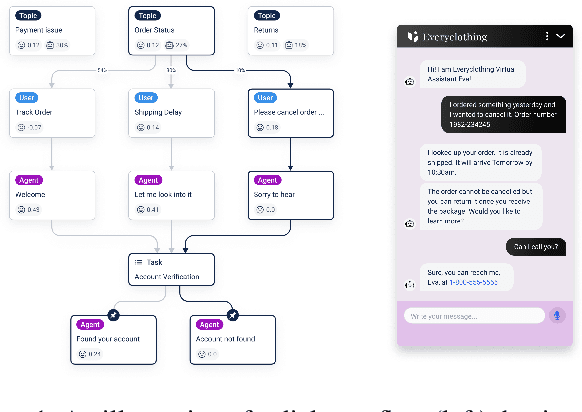
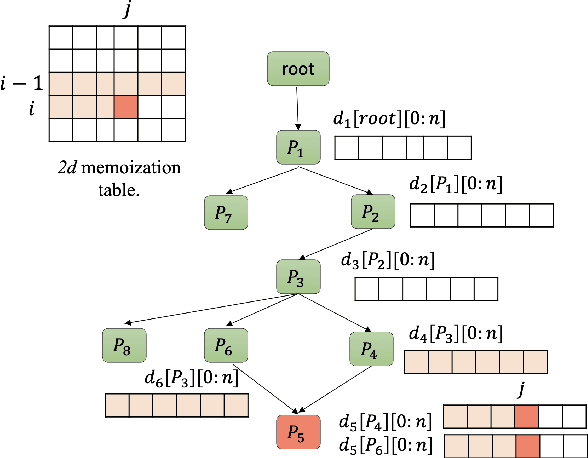

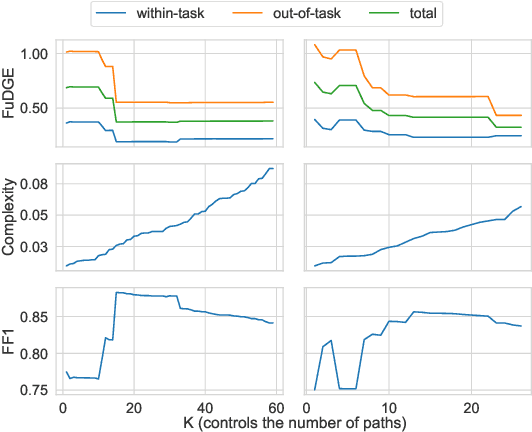
Abstract:Task-oriented dialogue systems rely on predefined conversation schemes (dialogue flows) often represented as directed acyclic graphs. These flows can be manually designed or automatically generated from previously recorded conversations. Due to variations in domain expertise or reliance on different sets of prior conversations, these dialogue flows can manifest in significantly different graph structures. Despite their importance, there is no standard method for evaluating the quality of dialogue flows. We introduce FuDGE (Fuzzy Dialogue-Graph Edit Distance), a novel metric that evaluates dialogue flows by assessing their structural complexity and representational coverage of the conversation data. FuDGE measures how well individual conversations align with a flow and, consequently, how well a set of conversations is represented by the flow overall. Through extensive experiments on manually configured flows and flows generated by automated techniques, we demonstrate the effectiveness of FuDGE and its evaluation framework. By standardizing and optimizing dialogue flows, FuDGE enables conversational designers and automated techniques to achieve higher levels of efficiency and automation.
KULCQ: An Unsupervised Keyword-based Utterance Level Clustering Quality Metric
Nov 15, 2024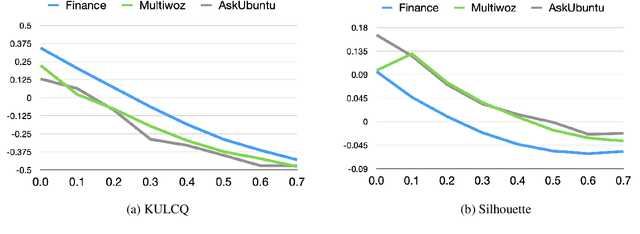


Abstract:Intent discovery is crucial for both building new conversational agents and improving existing ones. While several approaches have been proposed for intent discovery, most rely on clustering to group similar utterances together. Traditional evaluation of these utterance clusters requires intent labels for each utterance, limiting scalability. Although some clustering quality metrics exist that do not require labeled data, they focus solely on cluster geometry while ignoring the linguistic nuances present in conversational transcripts. In this paper, we introduce Keyword-based Utterance Level Clustering Quality (KULCQ), an unsupervised metric that leverages keyword analysis to evaluate clustering quality. We demonstrate KULCQ's effectiveness by comparing it with existing unsupervised clustering metrics and validate its performance through comprehensive ablation studies. Our results show that KULCQ better captures semantic relationships in conversational data while maintaining consistency with geometric clustering principles.
Athena: Constructing Dialogues Dynamically with Discourse Constraints
Nov 21, 2020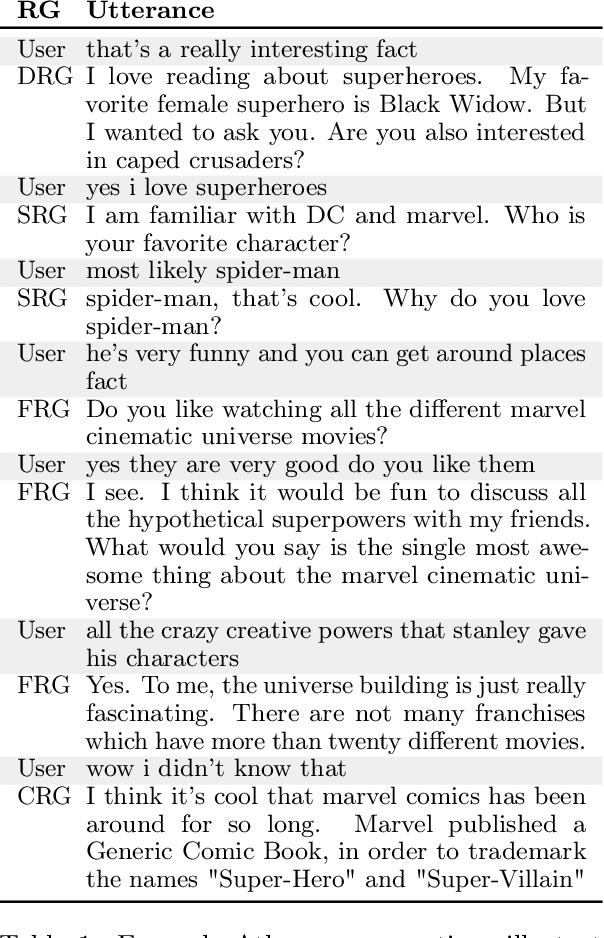
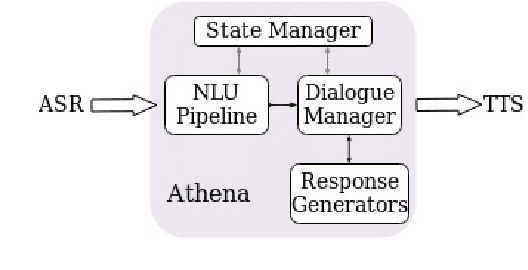

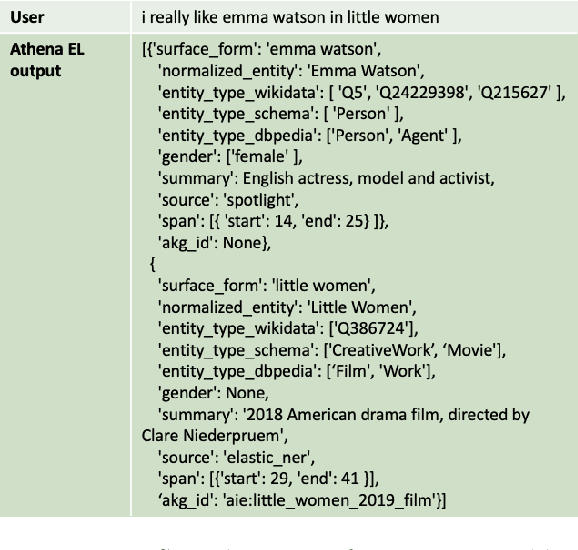
Abstract:This report describes Athena, a dialogue system for spoken conversation on popular topics and current events. We develop a flexible topic-agnostic approach to dialogue management that dynamically configures dialogue based on general principles of entity and topic coherence. Athena's dialogue manager uses a contract-based method where discourse constraints are dispatched to clusters of response generators. This allows Athena to procure responses from dynamic sources, such as knowledge graph traversals and feature-based on-the-fly response retrieval methods. After describing the dialogue system architecture, we perform an analysis of conversations that Athena participated in during the 2019 Alexa Prize Competition. We conclude with a report on several user studies we carried out to better understand how individual user characteristics affect system ratings.
 Add to Chrome
Add to Chrome Add to Firefox
Add to Firefox Add to Edge
Add to Edge